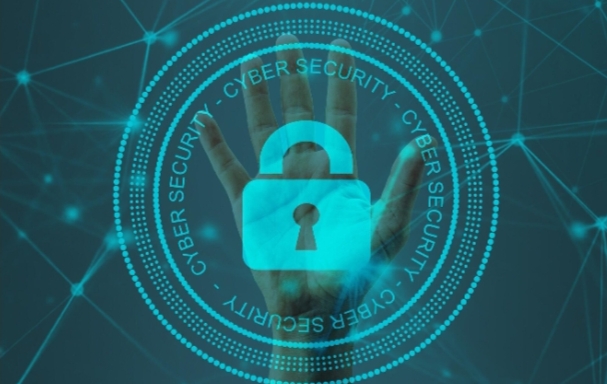A whopping 73% of small businesses in the U.S. faced cyberattacks in 2023, with employee and customer data being the prime targets.
For any business owner, the thought of exposing user data is a nightmare. Data breaches can trigger a domino effect. Think of crippling financial burdens, a shattered reputation, and even costly legal battles. This is why prioritizing data security is paramount.
This guide will walk you through things to do to keep your data safe and sound, allowing you to focus on what you do best – building a thriving business.
Restrict Access to Your Business Data
Unrestricted access to sensitive company information can be disastrous. It can lead to data breaches, compliance issues, and even financial losses. The good news is that there are various ways to establish who has access, when, and why.
Some common ways to restrict access to user data include:
Access Control Systems
These are the gatekeepers of your business’s data. They determine who can access specific data, files, or systems based on their roles and responsibilities. Think user accounts with varying permission levels – some have full access while others might only have access to limited data sets.
Password Management
Strong, unique passwords are essential for access control. Enforce complex password policies. The best ones include a mix of uppercase and lowercase letters, numbers, and symbols.
Consider multi-factor authentication (MFA) to add an extra layer of security. MFA requires a code from your phone or fingerprint scan on top of the password.
Data Encryption
Imagine scrambling your data into a code that can’t be read. Encryption does just that, making it unreadable to anyone without the decryption key. This is particularly important for highly sensitive data like financial records or customer information.
Restricting access is like adding layers of security – strong locks, access codes, and limited access keys. Each layer adds another barrier against unauthorized entry, keeping your valuable data safe.
Ultimately, businesses create a more secure environment. This helps increase your business attractiveness to customers and stakeholders.
Monitor User Activity
While crucial, access controls don’t always guarantee the security of your business data. In addition to restricting business data access, it’s important to keep an eye on who’s accessing what.
User activity monitoring involves tracking data access attempts. It allows you to identify suspicious activity or potential breaches. It’s like having security cameras in your data vault, recording all entries and exits.
Perform Penetration Testing
A penetration test is a simulated cyberattack performed on a business’s computer systems and networks. It is also known as a pen test or ethical hacking. Think of it as a controlled “attack” on your business’s cyber defenses.
Acting with permission from the business, pen test companies have ethical hackers who utilize the same techniques and tools that actual attackers would use. They scan for vulnerabilities, attempt to gain unauthorized access, and exploit weaknesses in the system’s security.
Why Do Businesses Do This?
Penetration testing is like a disaster drill for your digital security. By simulating an attack, businesses can identify and address security vulnerabilities before a real cyberattack occurs. This can be a valuable tool in your online data management arsenal, offering benefits like:
- Reduced risk of data breaches
- Better security posture
- Enhanced compliance
- Increased peace of mind and confidence
- Improved competitive advantage
- Increased trust with customers
Different pen test companies use different tests and methods to assess your business’s cybersecurity vulnerability. Choose one that suits your organization’s unique needs.
Classify Your Business Data
Ever accidentally sent a confidential document to the wrong person? Not all user data is created equal. Classify your data based on its sensitivity (confidential, internal use only, public, and so on).
With classified data, you can prioritize and enhance your security efforts. Resources like security software or employee training can be focused on protecting the most critical data first. This maximizes the effectiveness of your security posture.
If a data breach occurs, data classification allows for a quicker and more focused response. You can identify what data was potentially compromised and take swift action to mitigate the damage.
Data classification isn’t a one-time event.
Review and update your classification system, as your business evolves and new data types get created. This ensures your data security measures remain aligned with your evolving needs and threats.
Back-Up Your User Data
Malicious software, hackers, and ransomware attacks pose a constant threat to company data. Backups provide a safety net. Even if your systems get compromised, you can restore clean, uninfected data from your backups. This minimizes downtime and potential financial losses.
Knowing your company data is secure fosters peace of mind. This allows you to focus on running your business.
Maintaining backups of critical data can also ensure compliance with regulations. This helps avoid potential fines or legal repercussions.
Train Your Employees
Many cyberattacks occur due to human error. If you want to protect your business against these threats, it helps to empower your employees to be data security champions. Think of them as informed guards within your data vault, aware of potential threats and how to combat them.
Regularly train them on best practices for cybersecurity aspects such as:
- Data handling
- Password hygiene
- Identifying phishing attempts
- Secure Internet browsing techniques
- Use of two-factor authentication
Training also ensures your employees are aware of regulations like GDPR and HIPAA and can handle sensitive data responsibly. This helps avoid costly fines or legal trouble.
Promoting data security awareness among employees helps cultivate a culture of responsibility throughout the organization. This fosters a collective effort to protect sensitive company information.
Get Cybersecurity Experts to Protect Your User Data
In today’s digital landscape, safeguarding your business’s user data is more important than ever. It’s important to stay updated on cybersecurity trends and practices.
While strong security measures are key, there’s no one-size-fits-all solution. Every business faces unique cybersecurity threats and requires a tailored approach to stay secure. Use professional cybersecurity services for expert knowledge and tools to defend against these threats.
Take steps to improve your cybersecurity and protect your business’s key assets today. Browse our business blog section for more insightful tips on running a successful business.




